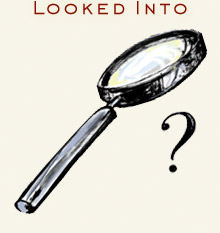Emdashes—Modern Times Between the Lines
The Basics:
About Emdashes | Email us
Ask the Librarians
Best of Emdashes: Hit Parade
A Web Comic: The Wavy Rule
Features & Columns:
Headline Shooter
On the Spot
Looked Into
Sempé Fi: Cover Art
Brody and Scott on Realism, and Raban on Northwestern Reality
Filed under: Looked Into Tagged: A.O. Scott, film, Front Row, Jonathan Raban, Jonathan Taylor, Richard Brody, The New York Times

Jonathan Taylor writes:
A.O. Scott has posted a reply to Richard Brody's Front Row critique of his Times magazine article on "neo-neorealism."
I'll note in passing "Metronatural America," an article by Jonathan Raban from a recent New York Review of Books about the films of Kelly Reichardt, particularly "Wendy and Lucy." I think Raban captures the "complexity and ambiguity" in these films that Brody suggests is lacking. At the same time, the contrast Raban notes between these films and the stories of Jon Raymond in Livability (from which both "Old Joy" and "Wendy and Lucy" were adapted) perhaps jibes superficially with Brody's claim that the movies put "emphasis on outer life at the expense of inner life":
Where Kelly Reichardt practises a strict, Carveresque minimalism, leaving out far more than she puts in, Raymond is a prose maximalist. Although his characters have difficulty relating to each other, they relate to the reader with unbuttoned, occasionally garrulous, intimacy. To the reader alone, they entrust their memories, thoughts, feelings, landscape descriptions, even as they explain to the reader why these private riches can't be shared with the person closest to them in the story.
Still, I think that what Reichardt does with "the outer life" and the constraints it puts on the conduct of "the inner life," is as profound a portrait of the latter as anything.
I was recently talking to a friend about "Old Joy," and the question of whether it was "depressing" came up; to which I responded that I did find it a bit depressing, but was thrilled, in a way, that it had left me precisely as mildly depressed as might be described as my resting state. For me solipsistically, at least, an indicator of the film's unusual "realism."




Comments
Great post, Jonathan, especially that closing bit. I’m itching to call the Brody/Scott exchange a “brawl” over neo-neorealism, but it might just be a … “hugger-mugger” or something. A “fracas”?
An imbroglio?
Now that I’ve read the three items involved, I must say: haven’t these people ever heard of Dogme 95? That seems to me a closer analogue to these, ahem, “neo-neorealists.” I’m probably missing something.
Martin, I wondered that too!